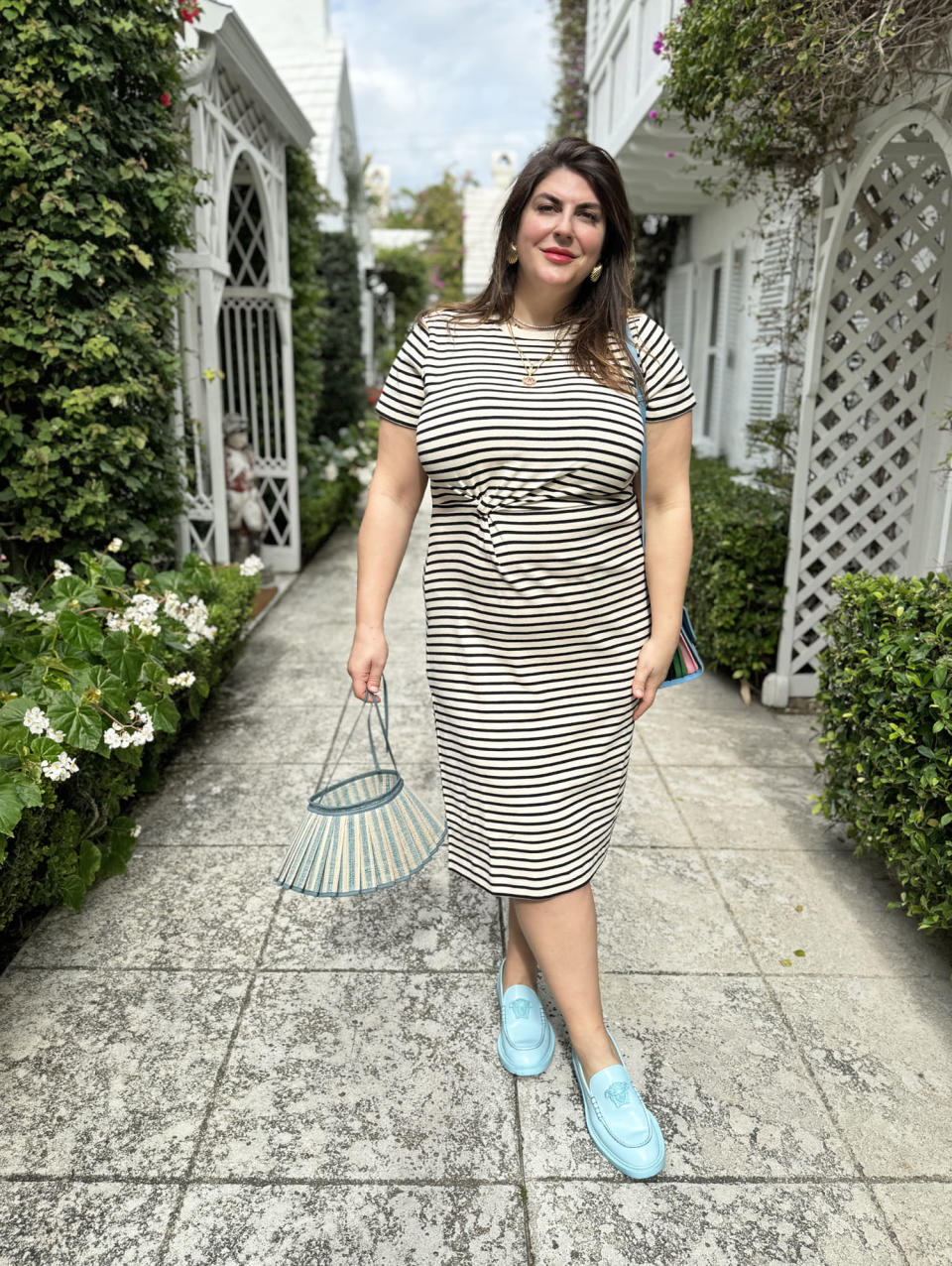I got a personal apology from the CEO of WeightWatchers. It felt like relief
Katie Sturino, a body acceptance advocate, recently received a personal apology from the CEO of WeightWatchers. It happened after Oprah Winfrey’s TV special about weight-loss drugs, when Sturino called out WW CEO Sima Sistani on social media for not apologizing on behalf of the company during the program “for all the toxic things (it) put into diet culture.” Sistani then replied on Instagram, saying “Katie, I want you to know I am sorry,” and adding, “Part of that is acknowledging the past where we played any part in the shame that people carry with them.”
In a statement to TODAY.com, Sistani said: "I have recently become aware of how deeply we impacted some people as a result of the experience they had with our company throughout its 60 years in business. To those individuals who felt shame, we see you and we hear you. We are committed to actively collaborating with others to ensure we have an inclusive future ahead. We welcome a conversation with voices of the community like Katie."
Sturino, 43, who lives in New York City, tells TODAY.com what the apology meant to her.
I was on WeightWatchers many times, probably starting in my early 20s. I lost weight, but every pound that I lost on WeightWatchers, I gained back and then some.
Many of the people who have messaged me about their own experience with WeightWatchers say that they started the program as children heading into these meetings with full-grown women who were talking about the anxiety of having big holidays come up. These are things that adults are talking about — there shouldn’t have been kids in the room.
Looking back at their photos, many people say that they were not even severely overweight.
The WW program changed over the years from “only eat these foods” to the point system. Then it was no points. People may have disordered eating. They’re dealing with deeper issues through a point system that doesn’t address the mental part and the eating disordered part of the way that we feed ourselves in America.
So I was curious what WW CEO Sima Sistani was going to say on Oprah’s TV special. She started to get a little personal, and that felt exciting to me. She brought it right up to the point of feeling like an apology, but to me, it was a little disappointing at the end.
Then I watched the Instagram video. Hearing WW CEO Sima Sistani apologize directly to me meant way more than I expected it to mean.
When she acknowledged that it wasn’t my fault, it was an acknowledgement of decades of self-hatred and pain that not only I felt, but so many people in my community have expressed to me. It was like, hey, you didn’t need to take that on. That’s our fault. We’re sorry.
That felt like, whoa. Because the one thing that people love to do when it comes to other people’s bodies is blame them: “You’re fat, you don’t have discipline. You’re fat, you can’t stop eating. You’re fat, you’re lazy.” There are all these judgmental statements when they’re looking at someone in a bigger body.
The apology felt like some relief from that. I think she understood the impact.
I cried when I heard it. I think my younger self is the one who reacted to it. It’s uncomfortable to cry on camera, but I wanted to react to her words with what I was really feeling and not a composed version an hour later where my thoughts are gathered. I wanted to let people know how that felt in the moment. And I didn’t know that I needed to hear it, too.

We’re in one of the most interesting times in diet culture because we’ve been screaming for body acceptance, body diversity, expanding clothing sizes and putting models with bigger bodies on the runway. We’ve come off of a decade of fighting for that and run right into the wall of the GLP-1 drugs.
The weight-loss drugs are tools. If people need the shot, I have no problem. The trouble we’re running into is people without actual medical issues taking it for aesthetic reasons and flaunting that in mainstream pop culture. That brings us back to a dangerous diet cycle time of the early 2000s, when eating disorders were on such severe display with no backlash.
There’s such fat phobia in our culture. Parents are so terrified to think that a child would grow up fat that they will do anything to make sure that that doesn’t happen, no matter what the mental impact is on the child.

Gaining and losing weight should not be our only metric for if we’re happy with ourselves or with our body. We need to start looking more at what health and longevity actually mean to us personally and less about the size of our pants.
There's this attitude that being small is the only way to have health, but you could be totally inactive, living on Diet Coke, and fit in a size 2. Or you could be doing Iron Man, but you’re a size 16.
There’s nothing wrong with changing your weight, up or down. It’s more about your health. Not every big body is unhealthy, and not every small body is healthy.
We’re in a very interesting time of: What is healthy? What is the acceptable body? The answer is all bodies are acceptable.
I am very excited because it feels like the beginning of a conversation that could lead to actual change.
Editor's note: This interview was edited and condensed for clarity. Sturino has previously partnered with Novo Nordisk, the pharmaceutical company that makes Ozempic and weight-loss drug Wegovy. She has not participated in a campaign specific to those, or any other weight-loss drugs.
This article was originally published on TODAY.com

